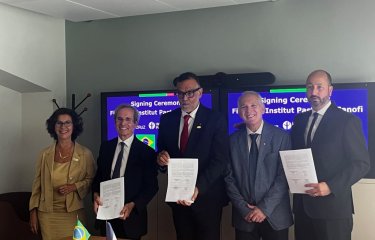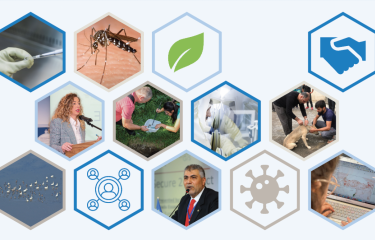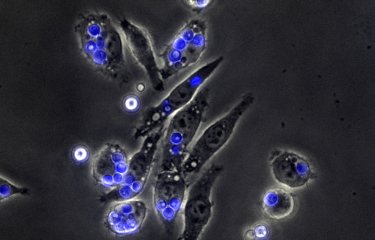Interview with Rindra Randremanana, epidemiologist, deputy-head of the epidemiology unit and leader of the nutrition theme at the Institut Pasteur of Madagascar.
Many children suffer from malnutrition in Madagascar?
Malnutrition is one of the worst threat to child health in our country. Despite the establishment, for several years, of prevention and control programs, chronic malnutrition still affects almost half of Malagasy children. Although children look apparently healthy, their weight and height are insufficient for their age compared to international standards. Acute malnutrition that affects 8% of Malagasy children is the consequence of a sudden lack of food, in case of drought or acute illness for example. Children quickly lose weight and suffer physical complications that can lead to death.
What is the main focus of research on malnutrition at the Institut Pasteur in Madagascar ?
We started research on malnutrition, in 2013, with a study aiming to develop recommendations to prevent chronic malnutrition. We showed the necessity to improve hygiene and sanitation conditions, the accessibility for the population to health services (deworming, delivery, consumption of vitamin A...), and child nutrition (ie: the need for protein and iron). In 2014, we have led, in collaboration with UNICEF and the government of Madagascar, a survey to assess the iodine status of Malagasy population. Iodine is a micronutrient whose deficiency, especially during pregnancy, causes serious disturbances of the foetal brain development and stunted growth. Recently, we have started two international research projects on malnutrition. Malinea focuses on acute malnutrition while Afribiota focuses on pediatric environmental enteropathy, one of the probable causes of chronic malnutrition.
What exactly is your role in the Afribiota project?
I am in charge of all the diagnostic and epidemiology part. Concretely, it is about defining the modalities of biological samples and associated data collection, ensure their strict application in community and hospital and participate in the statistical analysis regarding the diagnosis and the identification of risk factors. Today, the most commonly used test to diagnose pediatric environmental enteropathy, requires the collection of a urine sample for 5 hours from a fasting child. This is very restrictive and impracticable on a large scale in Madagascar. Comparing various specimens from normally nourished children and chronically malnourished, we hope to identify a biomarker that will help us develop an easier-to-use diagnostic test for pediatric environmental enteropathy. We will also try to understand the demographic and dietary factors, related to households that are responsible for this syndrom.
Malinea is a clinical trial?
Yes, Malinea evaluates the efficacy of three renutrition strategies against acute malnutrition. The children included in the trial will receive the standard treatment, an enriched flour manufactured by a local company, but it will be administered either alone or with an antibiotic or a prebiotic. Then we will see which of the three approaches is most effective in ensuring children's weight gain. We rely in this project on the network of renutrition structures developed for many years by GRET in Madagascar.

Have you always worked on malnutrition?
No, initially I wanted to be surgeon. When I prepared my MD thesis I found an internship, here, in the epidemiology unit and that's when I started to get excited about this research area. I have worked on projects about malaria, tuberculosis and infant diarrhea. Today I am happy to share my knowledge with students and to train the next generation of researchers who will take over tomorrow. There is so much to do for health in Madagascar!
Afribiota is conducted in Madagascar and Central African Republic with the support of Total Foundation and the Nutricia Research Foundation.
Malinea is conducted in Madagascar, Niger, Central African Republic and Senegal with the support of the French Ministry of Foreign Affairs and International Development.
Mis à jour le 21/07/2016





